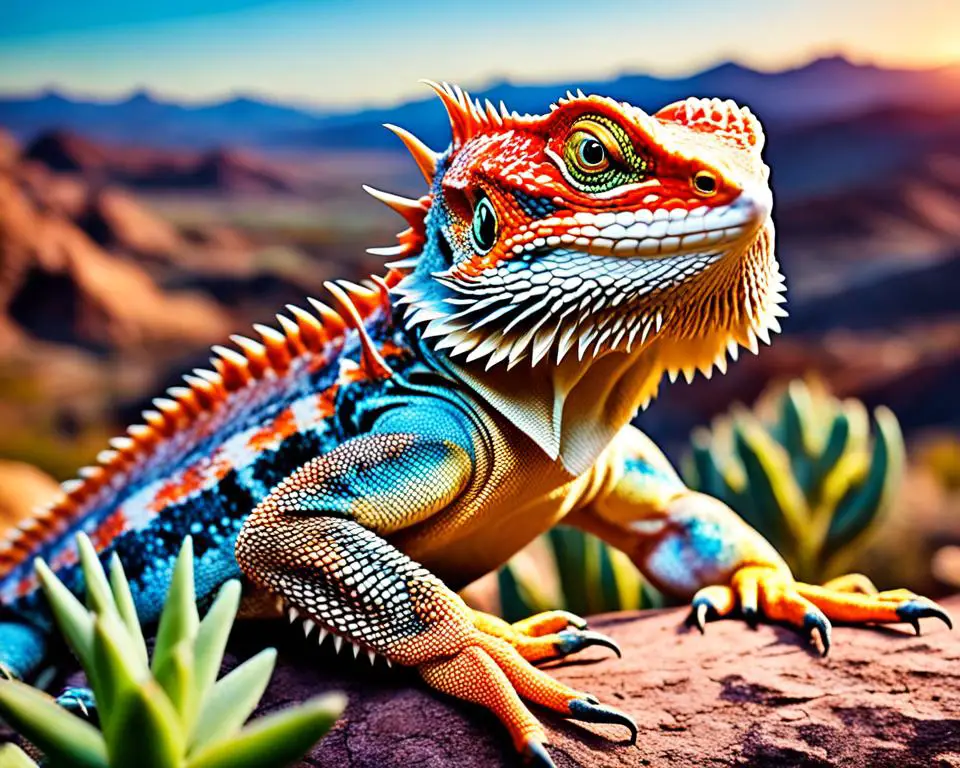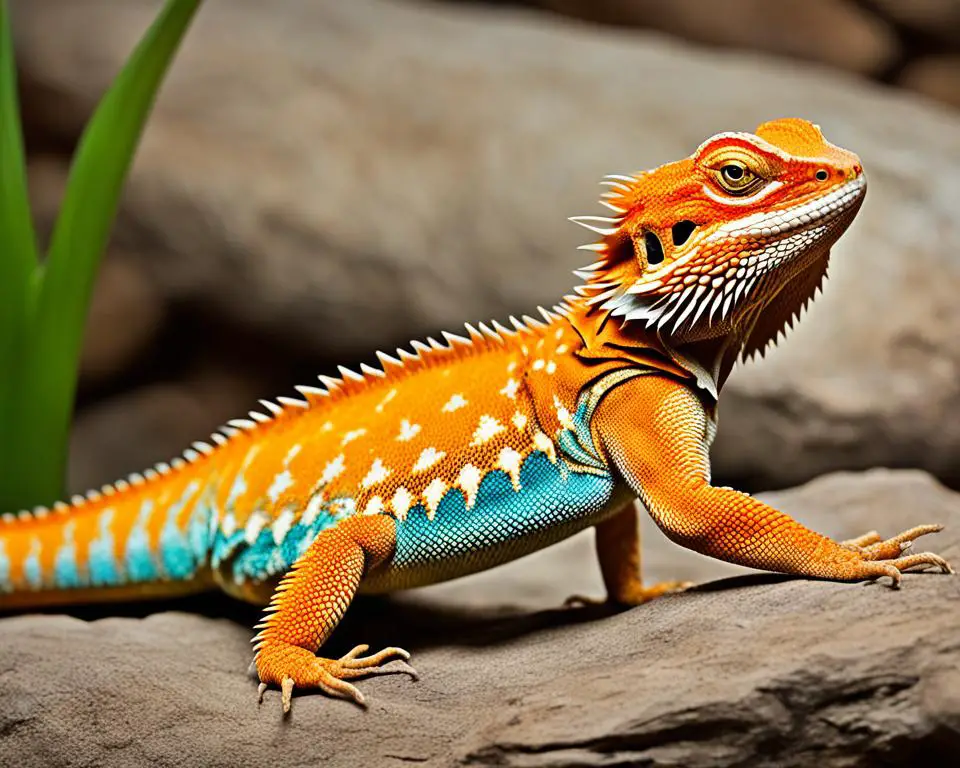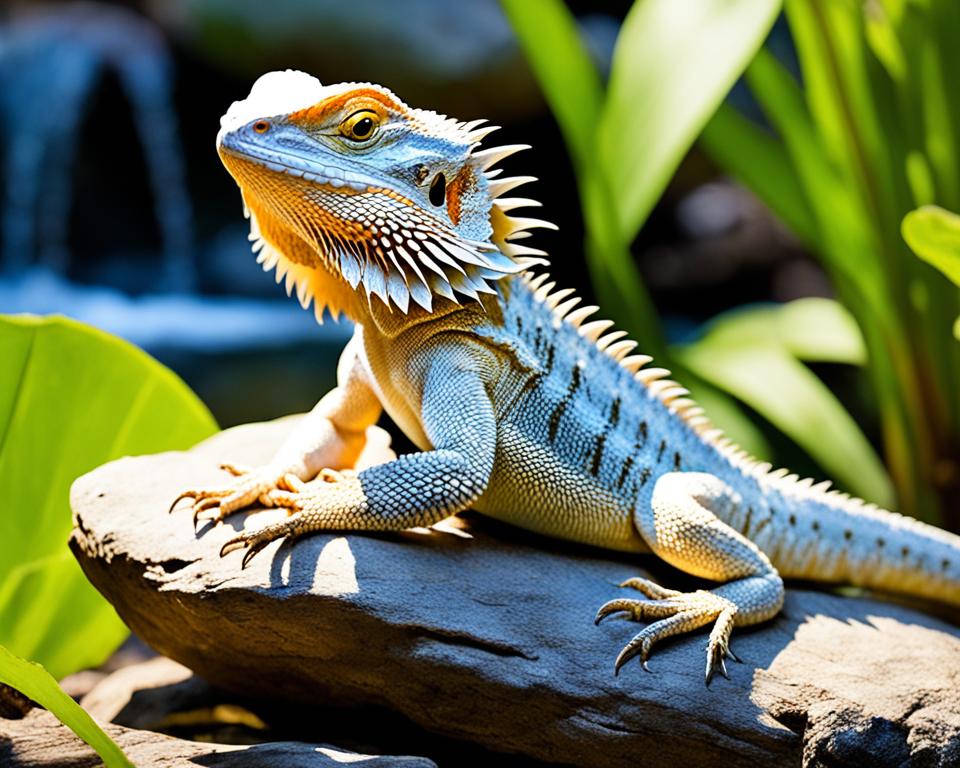Exotic animals have gained popularity in recent years, and bearded dragons are no exception. Many people have adopted these animals as pets but might not be aware of the care they need to stay healthy.
That said, many people wonder if it is safe to use coconut oil on their reptiles, so can you use coconut oil on bearded dragons?
As a general rule, coconut oil can be applied to the bearded dragon as long as you do so sparingly and in moderation. Coconut oil is an excellent source of vitamins and minerals that help keep their skin hydrated.
It is also a natural antibacterial agent which helps to protect against skin infections.
However, if too much coconut oil is applied, it can cause your reptile to become overly greasy and uncomfortable.
In this article, we’ll dive deep into the benefits of using coconut oil on bearded dragons and show you exactly when and why you should use it.
We will also give you some tips for applying coconut oil safely and effectively.
So let’s start with the basics.
What is coconut oil?
Coconut oil is made from the flesh of mature coconuts. It is high in saturated fat and has been used for centuries as a cooking oil and skin moisturizer.
It contains healthy fats, vitamins, and minerals that benefit your dragon’s skin and scales.
Can I put coconut oil on my bearded dragon?
It is safe to apply coconut oil topically to your bearded dragon. Coconut oil has antibacterial, anti-fungal, and antiseptic properties that can aid in your reptile healing process.
It can also help protect their skin from infection and keep them moisturized in dry conditions. However, be sure only to use a small amount at a time and monitor your pet’s reaction before applying more. Also, coconut oil should not replace the need for a good diet and proper hydration.
When should I use coconut oil on my bearded dragon?
The best time to use coconut oil on your bearded dragon is during its shedding process. During this time, the extra hydration from the coconut oil helps soften their old scales and makes shedding easier and more comfortable.
It is also okay to use coconut oil on your bearded dragon in between shed cycles, but this should be done sparingly. Applying the oil too frequently can cause your reptile to become overly greasy and uncomfortable.
If your bearded dragon has dry skin, it is best to apply coconut oil once or twice a week, depending on the beardie’s needs. If your dragon has particularly dry scales, it is best to consult a veterinarian.
How do I apply coconut oil to my bearded dragon?
Applying coconut oil to your bearded dragon is a fairly simple process.
- First, you’ll want to ensure your dragon is clean and dry.
- Then, using a cotton swab or small makeup brush, carefully spread a thin layer of coconut oil across their skin and scales.
- Be sure to avoid their eyes, nose, and mouth.
- After applying the oil, you can use a soft cloth to rub it in and remove any excess oil gently.
Can bearded dragons eat coconut?
Bearded dragons can consume a small amount of coconut that is finely shredded or grated. The coconut should never be given to a bearded dragon as the primary source of food, as it does not provide the nutrition that they need.
When feeding coconut to your beardie, keep in mind the following points:
- Only feed your dragon in very small amounts, no larger than the size of its head.
- Serve fresh, organic coconut.
- Always pre-shred or grate the coconut before giving it as food.
Is coconut oil good for dragons?
Coconut oil is an effective moisturizer for bearded dragon skin. This natural remedy works well for keeping beardies moisturized when used in moderation. In fact, coconut oil is excellent for helping keep your beardie friend’s skin healthy.
Also, you should only use a tiny amount of coconut oil and ensure you are careful not to get it in their eyes or mouth.
How much coconut oil should I give my bearded dragon?
The general rule for coconut oil is to use no more than one teaspoon per ten grams of body weight per day.
This amount does not include anything the bearded dragon might get from their diet, as this may contain oils such as canola and avocado.
Can I use coconut oil to moisturize my bearded dragon?
Coconut oil is great for many things, including keeping your beardie’s skin soft and supple. There are some benefits to using coconut oil on your bearded dragon.
Here are three ways to use coconut oil to care for your lizard’s skin:
Moisturizing
If you want to give your bearded dragon a good moisturizer, look no further than coconut oil. Coconut oil is a natural way to hydrate and protect your dragon’s skin.
Shedding
Another benefit of coconut oil is that it reduces shedding. This is especially helpful if your bearded dragon sheds excessively. When you apply coconut oil to his skin, he won’t shed as often. And if he does, it will be softer and easier to clean away.
Minor Skin Irritations
Finally, coconut oil can help treat minor skin irritations. Your bearded dragon might pick at his skin and cause irritation. Using coconut oil on him will make it less noticeable and easier to heal.
Note: Only if your bearded dragon has dried skin or for the reasons indicated above coconut oil needs to be applied and not as a daily supplement.
Also, you should use only natural and organic coconut oil to ensure that your bearded dragon gets the best quality product.
Why use coconut oil used to remove incomplete shedding?
When your bearded dragon is shedding, the skin underneath can dry and irritate. Coconut oil helps to soothe the underlying skin while also providing moisture.
The oil lubricates the skin, making it easier for the old scales to come off and new ones to grow in. This helps to prevent Dysecdysis or incomplete shedding, which can cause infections and other health issues.
It’s also important to note that if your beardie has a problem with incomplete shedding, it should be addressed immediately by a veterinarian. Coconut oil can help soothe the skin and promote healthy shedding, but it won’t cure any underlying issues.
That said, let’s take a look at the shedding process in detail, so we can understand why coconut oil benefits it.
When a bearded dragon sheds, its skin loosens and becomes dry. The oil helps to keep the skin moist and prevent it from becoming too dry or brittle. This makes it easier for the old scales to come off and for the new ones to grow.
Definition of shedding
There are two types of shedding: complete and incomplete. Complete shedding occurs when the lizard’s hair falls out at once. Incomplete shedding happens when the lizard loses some of its skin over time.
Complete shedding usually happens during molting season, typically between March and May. Molting season is when the lizard grows new feathers and scales. During this period, the lizard sheds all of its old skin and replaces it with fresh skin.
Incomplete shedding may occur throughout the year, but it tends to happen more frequently during winter. It’s common for bearded dragons to lose up to half of their body weight during the winter months.
This causes them to lose a lot of water through their skin. As a result, they start to dehydrate and lose some of their skin. They then have to replace what they lost.
This is where coconut oil comes into play. It moisturizes the skin and keeps it soft and supple. This allows the lizard to get rid of old skin without worrying about cracking or breaking it.
Definition of Dysecdysis
Dysecdysis, also known as impaction or retained shed, is a common issue in bearded dragons. Though it’s usually not dangerous, it can indicate underlying health problems and cause discomfort for your pet.
It’s caused by a buildup of dead skin cells under the scales. These dead cells create a barrier that prevents the new skin from growing properly.
As a result, the lizard ends up losing more than just a few scales. Instead, he loses most of his skin.
What causes Dysecdysis in bearded dragons?
There are many causes of dysecdysis in bearded dragons. These include:
- Improper humidity levels. When the humidity levels in your tank or terrarium are too low, your beardie’s skin will start to dry out. This causes the old scales to stay on longer and make it difficult for the new ones to come off.
- Inadequate nutrition. A lack of vitamins, minerals, and other nutrients can also cause dysecdysis. Make sure you’re providing your beardie with a balanced diet to help prevent this issue.
- Dehydration. Dehydration can also lead to dysecdysis. Make sure your beardie has plenty of clean, fresh water available at all times.
- Low temperatures. Low temperatures can also cause dysecdysis. Bearded dragons like to live in warm environments, so make sure the temperature of your tank or terrarium is between 71 and 77 degrees Fahrenheit (22-25°C)
What can I do to prevent Dysecdysis in my bearded dragon?
The best way to prevent dysecdysis is to ensure the enclosure and environment are clean and properly set up and maintained. Bearded dragons need access to both UVB light and a source of heat, as well as plenty of places to climb and hide.
Also, a sturdy basking platform is important for them to maintain their grip when shedding. It’s also helpful to provide moist hideouts and/or humidity boxes so that the air stays at around 30-40% Rh to facilitate the shedding process.
Finally, regularly monitor heating zones in the enclosure. Low temperatures could slow down your dragon’s natural shedding process.
Can you use essential oils for bearded dragons?
No. Essential oils can be toxic to bearded dragons and should never be used on them.
However, coconut oil is generally considered safe for use on lizards and helps keep their skin moisturized and healthy.
Cold-pressed virgin coconut oil can be used to gently massage your beardie’s skin, which will help to loosen and remove the old scales.
What are essential oils bad for bearded dragons?
Essential oils such as tea tree, lavender, rosemary, peppermint, lemon, and eucalyptus can hurt your reptile and should never be used on them. These essential oils can cause irritation, respiratory problems, and even death if ingested or inhaled.
Summary
Before we move on to the conclusion, we’ve summarized this article into a short list of key points for you to remember:
- Coconut oil is safe for bearded dragons. However, use it in moderation.
- Use coconut oil to help soften and remove old scale layers.
- Do not apply coconut oil directly onto the skin. Use a cotton swab instead.
- Avoid using essential oils on bearded dragons.
- Keep an eye on the humidity level in your tank or terraria.
- Provide adequate nutrition and hydration to your bearded dragon.
- Monitor temperatures in your tank.
Conclusion
In this article, we discussed what coconut oil is, why it works great for bearded dragons, and how to use it safely. We also looked at the definition of dysecdysis and what causes it, as well as how to prevent it.
Finally, we discussed which essential oils can be harmful to bearded dragons and should be avoided. Dysecdysis can be a painful experience if not treated properly, so it’s essential to address the issue as soon as possible.
Want to learn more about bearded dragons?
Ready to boost your knowledge about your furry friend? If so, check out our other articles below:
- How to Get Rid of Bearded Dragon Poop Smell? (Explained)
- How Many Crickets Should a Bearded Baby Dragon Eat? (Explained)
- 9 Ways How to Tell If a Bearded Dragon is Scared (Solved)





